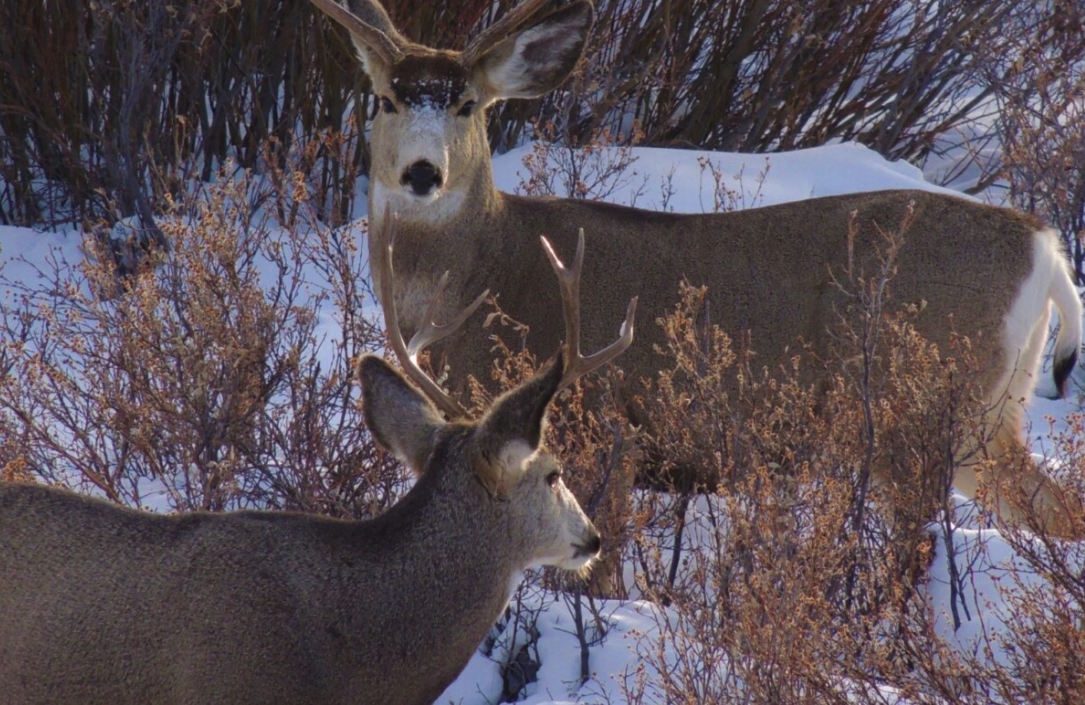Chronic Wasting Disease detected in B.C. deer for first time — BCWF
These are the first known cases of CWD in British Columbia.
“We have been watching CWD spread province to province, state to state for at least 20 years, so this is terrible news for British Columbians,” said Jesse Zeman, Executive Director of the B.C. Wildlife Federation. “CWD is devastating to cervid populations. Continued vigilance and testing are key to organizing preventative measures.”
Chronic Wasting Disease affects cervids, including deer, moose, elk, and caribou. Officials have been watching closely in the high-risk wildlife management areas of southeastern British Columbia adjacent to existing outbreaks in Alberta, Montana and Idaho.
The disease is 100 per cent fatal, with no known treatment. It is not known to affect humans or livestock.
CWD can leap into other regions unexpectedly, through the transport of carcasses, contaminated hay, or even urine-based scents.
CWD is a disease of the central nervous system, caused by infectious agents called prions. As the prions accumulate, they cause cell death in the brain and neurological disease, which is 100-per-cent fatal. Prions also accumulate in other tissues and may be shed by the infected animal into water or on plants and bedding through saliva, urine and feces.
The first positive sample was taken from a male mule deer, from an animal that appeared to be in good condition. However, a sample sent to the B.C. CWD Program by the hunter came back positive for this devastating illness.
The second sample was from a road killed animal, a female white-tailed deer and was submitted to the B.C. CWD Program for testing. The diagnosis was confirmed by the Canadian Food Inspection Agency reference laboratory on January 31, 2024.
Hunters are encouraged to provide samples for CWD testing after harvesting a deer anywhere in B.C., hunters can submit the head of the animal for testing.
In accordance with the Surveillance and Response Plan for CWD in B.C., the Provincial Wildlife Veterinarian is leading response management, according to the provincial government. Support and input will be requested from the CWD Advisory Committee and Regional Working Groups in the coming days, it said.
“We have failed our wildlife populations once again by underfunding the resources needed to manage them for the past 50 years,” said Steve Hamilton, BCWF Advocacy coordinator.
“Politicians should take this as a reminder that their actions and policies matter and we will be calling for much, much better for our wildlife in the upcoming elections.”
This has been one of our greatest fears for years. It wasn’t a matter of if, it was a matter of when. British Columbia’s challenge now is we have one of the most under-funded fish and wildlife management jurisdictions in North America. Without adequate funding and a measurable response, BC will limp this along and allow it to spread throughout the province.”
“At the same time, just like on issues such as invasive mussels and whirling disease, the Government of Canada has shown no political leadership to meaningfully fund, prevent or manage the effects of disease or invasive species. Every day that passes it becomes more and more apparent that maintaining healthy fish and wildlife populations in British Columbia is not important to the Government of Canada.”
“At this stage, we’re all in this together. As an active member of the CWD Committee and Regional Working Groups the BCWF will continue to support our provincial staff who have worked tirelessly on this file without the financial or political support required to combat this.”
“The BCWF and its clubs have supported the CWD Committee and surveillance by purchasing freezers, donating funding and volunteer time to support provincial government staff.”


























Comments